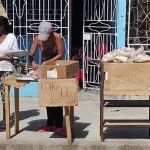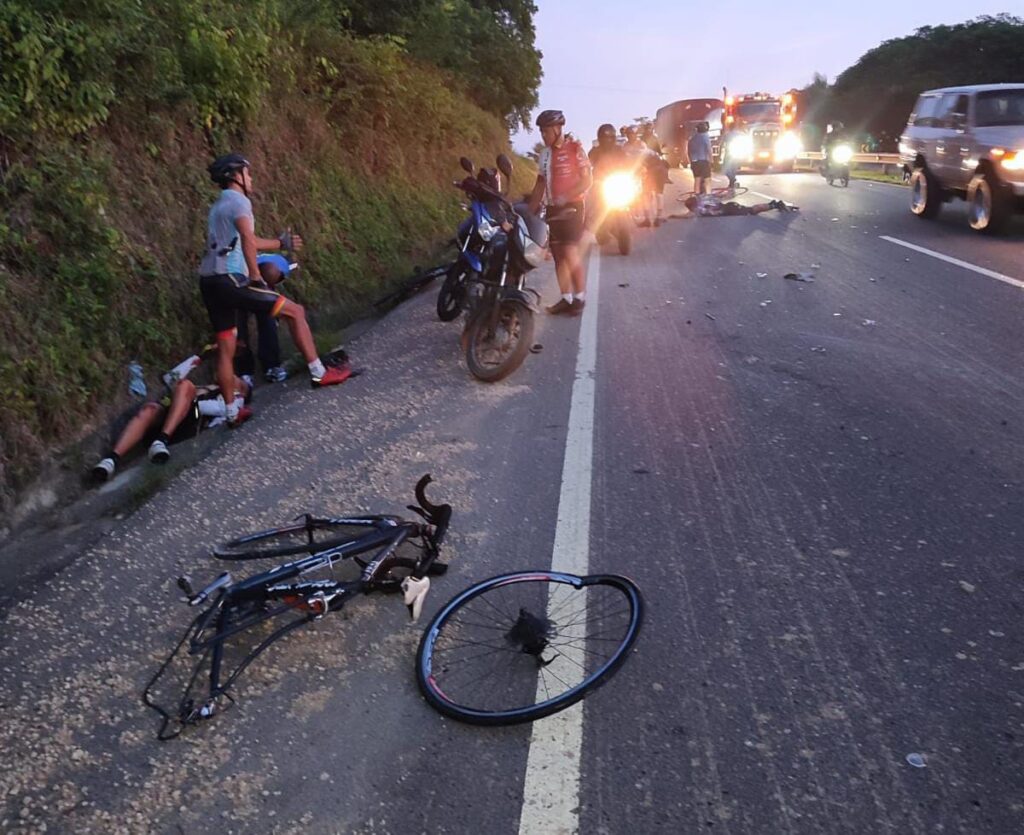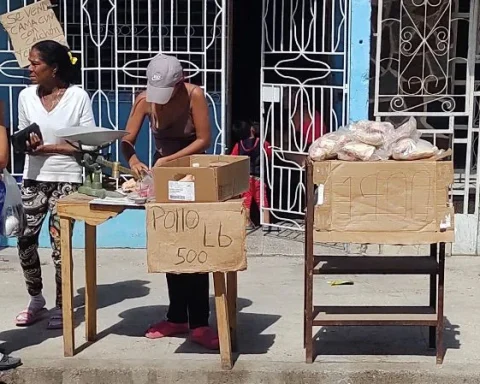The Temuco Court of Appeals rejected the amparo appeal filed by the defense of Héctor Javier Llaitul Carrillanca against the resolution, issued by the city’s Guarantee Court, which decreed the preventive detention of his client, charged by the Public Ministry as the author of consummated crimes contemplated in the State security law, violent usurpation of land, theft of wood and attack on authority.
In a unanimous ruling, the First Chamber of the appeal court did not give rise to the constitutional action filed, considering that the appealed resolution, decreed on Thursday, August 25, just last, was adopted subject to the current legal regulations. In addition, the subsidy request was rejected and the transfer of Llaitul Carrillanca to the Mapuche module of the Temuco Preventive Detention Center was denied.
“That, analyzing said articles in their context, it is clear that the same Judge who has ordered the arrest of the accused, can control its legality, by stating that the order is issued ‘to be brought to their presence’ and that ‘they will immediately lead to the detained in the presence of the judge who issued the order. A different interpretation would lead to the absurdity of understanding, for example, in a single-person court, that the Judge who issued the order would be disqualified from hearing the respective detention control hearing and other ancillary issues mentioned, which is not such. That, furthermore, it should be borne in mind that the Guarantee Judge rejected the friendly challenge request made by the defense, there being then no legal cause of incapacity that made it impossible for her to hear the hearing on August 25, 2022, especially if the analysis carried out by the Magistrate at the time of giving rise to the arrest of the protected person, is related to the assumptions of article 127 of the Code of Criminal Procedure. (…) Based on the foregoing, it can be stated that the principle of impartiality has not been affected by the basic sentencing entity”, states the ruling.
Regarding the allegation of the violation of the right to a natural judge, the ruling maintains that: “From the foregoing it follows that the circumstance of having formalized an investigation for acts that would constitute illicit acts of Law 12,927 and, in addition, of crimes contemplated in the Penal Code , it has been within the framework of powers that the law grants to the Public Ministry and that does not harm the precept alluded to by the appellant for amparo, together with noting that the communication has been made in the presence of the competent judge, as required by law, understanding a group that is consistent with the necessary definition of the crimes attributed according to their respective descriptions.”
Regarding the allegation of the defense regarding an alleged lack of justification in the precautionary measure of preventive detention decreed: “(…) this Court considers that the decision of the Temuco Guarantee Court, in that part in which the precautionary measure was imposed, It is a matter that was the subject of a judicial resolution issued by a competent court, in the exercise of its legal powers, is duly founded and was issued within a procedure where the protected party is a party, being duly represented, previously citing the evidence and analyzing then the Magistrate in the Seventh and Eighth recitals, the background information provided at the hearing, to then in the Ninth and Tenth reasons give answers to the defense’s allegations, for in the Eleventh recital taking into account the sentence assigned to the crime, the number of crimes imputed to him, consideration of the extent of the harm caused and the determination of the most favorable sentence, make the decision to impose the most burdensome precautionary measure, ”reasons the court of appeal.
“That finally – he continues – in the case of the need for caution established in letter c) of article 140 of the Code of Criminal Procedure, although it is true that the various penalties assigned to formalized crimes, start in penalties of a simple crime, the court does not may be unaware at this procedural stage that the defendant had to compulsively appear in court, the number of crimes charged to him, their nature, that acts 3 and 4 were committed in a group or gang, and the probable penalty he risks. the accused, since even in the most thorough analysis of the determination of the favorable sentence, even disregarding those that have an alternative penalty of a fine, it is not possible to arrive at a sentence less than that of imprisonment in its minimum degree, which would prevent him from the fulfillment of the same in freedom. The foregoing without considering the harm caused, which even though it was not part of the agent’s fraud in theory, the truth is that the allegation made by the victim’s representative added to the consequences of public knowledge that these events cause in the community, it is possible to infer that the liberty of the accused constitutes a danger to the security of society and a risk of escape.”
For the Court of Temuco, in the species: “From what has been said it is noted that it is not the only enumeration of the antecedents, as claimed, having consigned the reasons of fact and of law taken into consideration to make the decision, giving rational explanation of the reasons for imposing the preventive detention measure, considering the insufficiency of the other existing measures, being clear in the background that justified its decision, not envisioning any illegality when ordering the deprivation of liberty of the accused. These judges estimate that the provisions of articles 36, 122, 139, 140 and 143, all of the Code of Criminal Procedure, have been complied with.”
“Which – he adds – on the other hand, the exceptionality of the amparo action must be considered when choosing within the diversity of procedural resources that both the Constitution and the Law establish in favor of those who intend to rise up against a judicial resolution, because as the Excellency Supreme Court has pointed out for quite some time, vb.gr. in case No. 4965-2013, ‘… such an understanding of the action under analysis (recurso de amparo) supposes the exceptionality of its origin if, as in the case under analysis, it is intended to attack resolutions issued by the courts of justice in the exercise of its powers and in accordance with the procedure established by law, especially if it contemplates mechanisms for challenging the decision and that allow the court designated by the procedural legal system to resolve the appeals that are deducted, the maximum degree of knowledge of the facts, in order to ensure that what is decided is subject to the merits of the process and the corresponding law.”
“(…) the debate regarding the preventive detention of the protected person took place within a current judicial process, in which its guarantees have been respected and the formative principles of the criminal process have been observed, which is why it is not possible to analyze the act appealed on the basis of some legal or constitutional infraction that affects him, which prevents this Court from acquiring a conviction about the existence of an illegitimate deprivation, disturbance or threat of the right to personal liberty of the appellant”, concludes the ruling.
In relation to the subsidiary request made by the defender, regarding the place where his client must serve preventive detention, the appeal court took into account that: “(…) it is stated in the Magistrate’s report that, previously, it was He contacted the Chilean Gendarmerie and based on what was stated by the entity, as soon as the decision was made ‘it was motivated by security reasons since the Temuco CCP is of medium security and the Angol CDP is overcrowded. The Biobío CCP has greater security, a penal hospital, and is in the region where the accused maintains his family.’ Adding that he would be in ‘module 89, individual cell, patio, dining room, bathrooms and near the hospital’, an issue that was previously coordinated with the regional directorates of Biobío and Araucanía.’ And it points out that ‘article 6 No. 13 of the Organic Constitutional Law of the Gendarmerie, Decree Law No. 2859, establishes as an obligation and attribution of the National Director of the Gendarmerie that of ‘Dispose of and indicate the establishment where detainees and defendants must remain private freedom, obtaining the authorization of the competent judge when they must leave the jurisdictional territory of the court of the case’. This Gendarmerie faculty was recognized as exclusive by the Most Excellent Supreme Court”.
“That, then, the appealed decision, on the questioned point, was issued in compliance with current legislation, and was limited to ordering the entry of the protected party, prior coordination of the Court with the Chilean Gendarmerie, in accordance with the exclusive powers that it has over the matter, a decision that is duly founded by virtue of the exposed antecedents, obeying the same for reasons of security and rooting of the protected person, “he concludes.
Therefore, it is resolved that: “It is rejected, the one deduced to the main thing by Mr. Rodrigo Román Andoñe, private criminal defender, on behalf of Héctor Llaitul.”


















